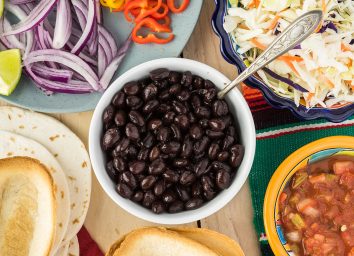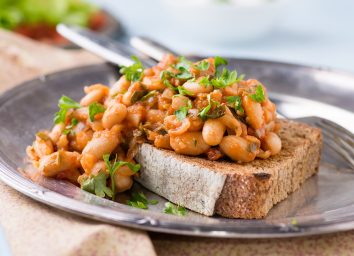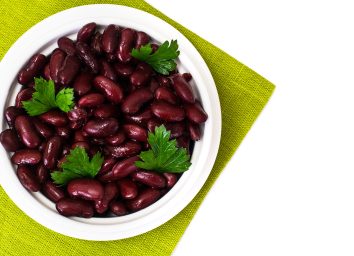Secret Side Effects of Eating Beans, Says Science
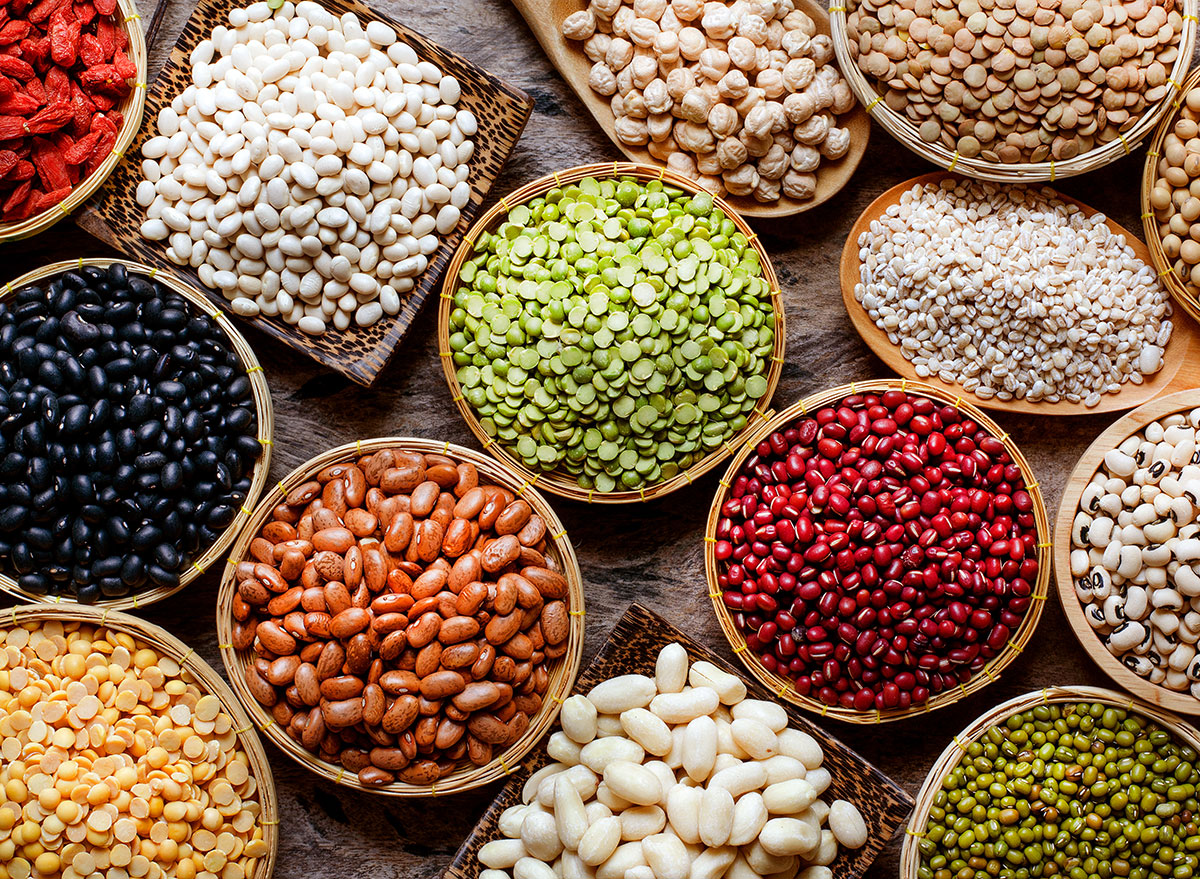
Whether you love tossing them on salads to add texture and flavor or regularly incorporate them into your meals as a vegetarian-friendly alternative to meat, beans are a great way to load any meal with delicious protein in seconds. However, it’s not just their affordability or ease of preparation that makes beans such a great staple to keep on hand at home.
Benefitting everything from your waistline to your cardiovascular health, read on to discover why beans are such a nutritional knockout. And for some more genius additions to your meal plan, check out 22 Meals to Melt Belly Fat in 2022.
Beans may reduce your risk of heart disease.

If you’re looking to lower your risk of heart disease, look no further than these trusty legumes.
A study published in the Archives of Internal Medicine found that, among a group of 9,632 men and women, those who consumed legumes four or more times a week had a 22% lower risk of coronary heart disease and an 11% lower risk of cardiovascular disease than those who ate them less than once a week.
And for more ways to protect against cardiovascular issues, discover The Best Foods That Can Help Lower Your Risk of Heart Disease.
Beans may improve your cholesterol.

Getting your cholesterol levels into healthier territory could be as simple as adding some more beans to your diet. A 2011 meta-analysis published in Nutrition, Metabolism & Cardiovascular Diseases found that, in examining data from 10 studies on 268 participants, individuals given a legume diet lowered their LDL cholesterol by an average of 8.0 mg/dL as compared to members of a control group.
Beans may keep you satisfied for longer.

If you struggle to stay full after a meal, try incorporating more beans into your favorite recipes. A 2016 study published in Food & Nutrition found that, among a group of 43 healthy adult men of normal weight, those who were provided a high-protein meal with a base of beans and peas rated themselves as being more satiated afterward than those provided a high-protein meal with a base of either pork or veal.
If you want to stay satisfied between meals, check out these 30 Hacks to Feel Full When You’re Trying to Lose Weight.
Beans may reduce your overall caloric intake.
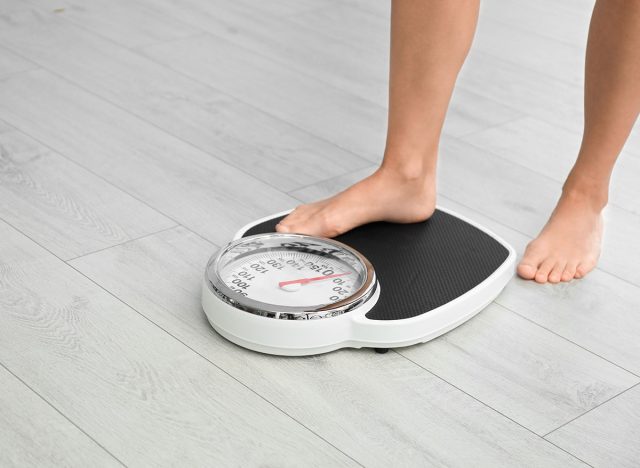
Losing weight may be as simple as swapping out some of the meat-based dishes in your diet for ones composed of beans instead. In the same Food & Nutrition study, the group that was provided with high-protein meals with a base of beans ate 12% less afterward than those who ate high-protein meals with a meat base.
Beans may reduce your risk of colon polyps.

Whether you have a family history of colon cancer or have had colon polyps and would like to head future ones off at the pass, there’s no time like the present to incorporate more beans into your diet. A 2006 review of research published in the Journal of Nutrition found a “significant inverse association between increased dry bean consumption and the recurrence of advanced colorectal adenomatous polyps,” with those who consumed the largest amounts of beans reducing their risk of advanced colorectal adenomatous polyps by 65%.
For more ways to improve the health of this vital organ, check out these Colon Cancer Signs to Watch For Now, Say Doctors, and for the latest health news delivered to your inbox, sign up for our newsletter!
Read this next:

